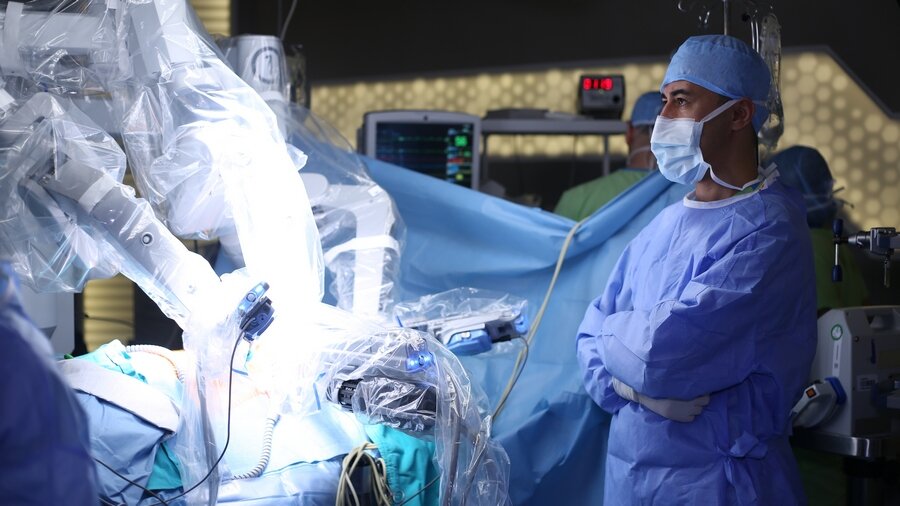Application of artificial intelligence in the field of treatment and medicine

It has always been said that artificial intelligence is supposed to make human life easier and better. One of the fields in which artificial intelligence can be very effective and improve the quality of human life is treatment, health, and medical services. In general, the use of artificial intelligence in therapeutic and medical processes and… makes great help for doctors and patients, as well as for hospitals that use this technology.
Artificial intelligence has numerous applications in medicine and treatment. The meaning of these countless users is that from recognizing the connection between genetic codes to using artificial intelligence robots for difficult surgeries, everyone is among the users of artificial intelligence in the field of medicine. With all these applications, artificial intelligence has been able to create a modern course in health services and take it to another level.
Use artificial intelligence to more accurately diagnose and reduce medical errors
In 2015, 10% of deaths in the United States were due to misdiagnosis and medical errors. For this reason, one of the most important tasks of artificial intelligence in the field of treatment and medicine can be to reduce medical errors and help correctly diagnose diseases.
Lack of accurate and complete information about people's medical records is one of the important reasons that can lead to costly and deadly medical errors. Given all this information, artificial intelligence can predict or diagnose a disease very quickly. In one study, for example, an artificial intelligence model using algorithms and in-depth learning performed better than 11 other pathologists in diagnosing breast cancer.
Development of new drugs based on artificial intelligence
The pharmaceutical industry always has a lot of money for research and development, which requires thousands of hours of time and thousands of manpower, which requires huge budgets. Statistics show that medical tests on each drug cost about $ 2.6 billion, while only 10 percent of the drugs tested can be marketed. Due to all these cases, pharmaceutical companies have started to use artificial intelligence due to the many applications that artificial intelligence can have in this field.
One of the most important milestones in the use of artificial intelligence in drug production was in 2007. This year, researchers tried to study the function of yeasts using a robot called Adam. Adam predicted billions of data points in public databases to hypothesize the function of 19 genes in yeast and predicted nine new and accurate hypotheses. Adam's robot friend, Eve, discovered that triclosan, a key ingredient in toothpaste, could fight malaria parasites.
Simplify and streamline the treatment process for patients using artificial intelligence
In the healthcare industry, time is equal to money and capital. Providing an effective patient experience allows hospitals, clinics, and physicians to receive and treat more patients on a daily basis.
In 2016, more than 35 million patients were admitted to U.S. hospitals, each with different diseases and different insurance coverage that creates different conditions. A 2016 study of 35,000 physicians found that 96% of patient complaints about lack of customer service were confusion about paper games and negative experiences with service delivery.
New AI innovations in the healthcare industry can improve the patient experience and help hospital staff process millions of data points faster and more efficiently.
Collect and manage medical data and information using artificial intelligence
One of the next frontiers to be conquered by big data will undoubtedly be the healthcare industry. Valuable information is sometimes lost in the millions of data, causing the industry to lose hundreds of billions of dollars. In addition, the inability to connect important data points slows down the development of new drugs, the production of prophylactic drugs, and the proper detection process.
Many healthcare professionals have turned to artificial intelligence to prevent these losses. This technology has the ability to analyze millions of data in minutes and extract information from which we need to spend a lot of time to obtain them
Get help from robots based on artificial intelligence in surgery
In recent years, the use of robots in surgery has become somewhat popular. Hospitals use robots in many areas, from minimally invasive treatments to open-heart surgery. According to a U.S. clinic, robots help physicians perform complex treatments with precision, flexibility and control that go beyond human capabilities.
Robots equipped with cameras, mechanical arms and surgical instruments increase the experience, skills and knowledge of physicians to create a new type of surgery. Surgeons control these mechanical arms using a computer. The robot gives the doctor a three-dimensional view with a magnification of the surgical site on the patient's body, which was not possible before and doctors used to rely only on the power of the eyes. Finally, this robot can guide the surgeon and the whole team.
Robotic surgeries reduce the risk of surgery, and the patient will feel less pain after surgery. In addition, in robotic surgeries, the patient's recovery time is reduced.
